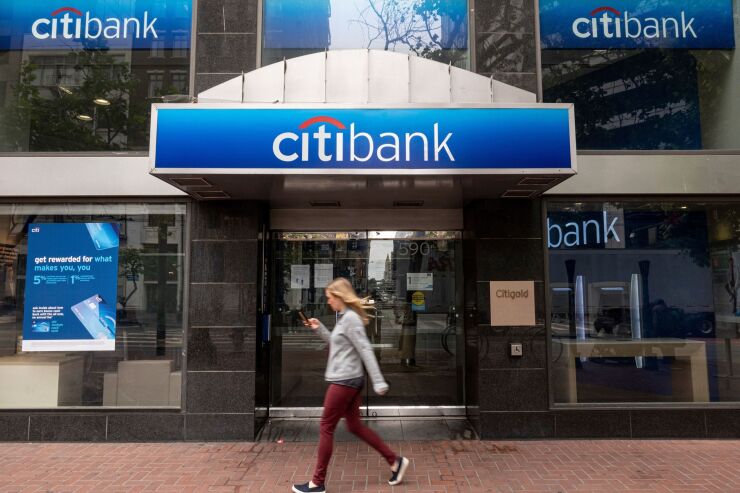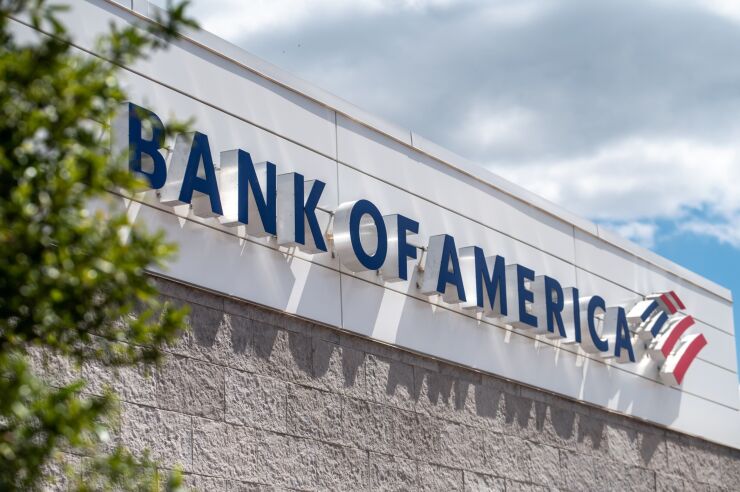
WASHINGTON — The House Judiciary Committee has subpoenaed Citibank for documents related to House Republicans' belief that major banks illegally shared private financial data with the Federal Bureau of Investigation related to the Jan. 6 insurrection at the U.S. Capitol.
The subpoena is part of a pervasive view on Capitol Hill among Republicans that the Biden administration and the Democratic party are weaponizing large government agencies and other powerful institutions — including banks — against conservatives. That narrative presents a tricky conflict for banks, which are grappling with how to manage their regulatory obligations to uphold data privacy and anti-money-laundering programs, but also share a general desire to stay out of political conflicts to whatever degree possible.
House Republicans said they are concerned that at least one institution — Bank of America — appears to have shared some data about individuals who made certain purchases and transactions, specifically Airbnb, hotel or airline travel reservations, in the Washington, D.C., area in the days close to Jan. 6. Individuals who purchased firearms with a Bank of America product like a credit card, the subpoena cover letter said, went to the top of a list provided to the FBI.
Some Republicans are concerned that Bank of America provided the FBI with that information "without any legal process," but in their subpoena, did not clarify what legal processes Bank of America would have had to follow to provide that information to federal law enforcement.
"Federal law enforcement's use of back-channel discussions with financial institutions as a method to investigate and obtain private financial data of Americans is alarming," Rep. Jim Jordan, R-Ohio, chairman of the Judiciary Committee and the Select Subcommittee on the Weaponization of the Federal Government, wrote in the subpoena cover letter to Citibank. "The documents received to date only bolsters our need for all materials responsive to our request."
Jordan is basing the claim that Bank of America provided information illegally on interviews with people he called "whistleblowers." Democratic lawmakers have questioned the credibility of those interviewees.
"These are not whistleblowers, they've been determined by the agency not to be whistleblowers, are you deciding that they're whistleblowers?" said Del. Stacey Plaskett, D-Virgin Islands, ranking member of the subcommittee, in a May hearing.

She added that the committee's probes and activities were acting as a "clearinghouse for testing conspiracy theories for Donald Trump to use in his 2024 presidential campaign."
Jordan said that the committee has "recently" obtained documents that say a Citibank representative was included on emails and Zoom discussions organized by the FBI and the Financial Crimes Enforcement Network aimed at identifying the best approach to information sharing after the Jan. 6 insurrection.
"The Committee and Select Subcommittee must understand how and to what extent financial institutions, such as Citibank, worked with the FBI — and potentially other executive branch entities — to collect Americans' data without an individualized nexus to criminal conduct," Jordan said.
The subpoena follows a letter the Judiciary Committee sent earlier this year to Citibank and other financial institutions requesting data on to what extent those banks illegally shared consumer financial data with the FBI. The Republicans say that Citibank hasn't been forthcoming with that information.
"To date, Citibank has declined to comply with our request voluntarily, and counsel has represented that it will only comply pursuant to a subpoena," Jordan wrote.
So the committee decided to send the bank one, "in light of your lack of compliance with our earlier voluntary request and the representation from your counsel that Citibank requires a subpoena to comply with our oversight," he continued.
Citibank and Bank of America declined to comment.
Allissa Kline contributed to this story.





